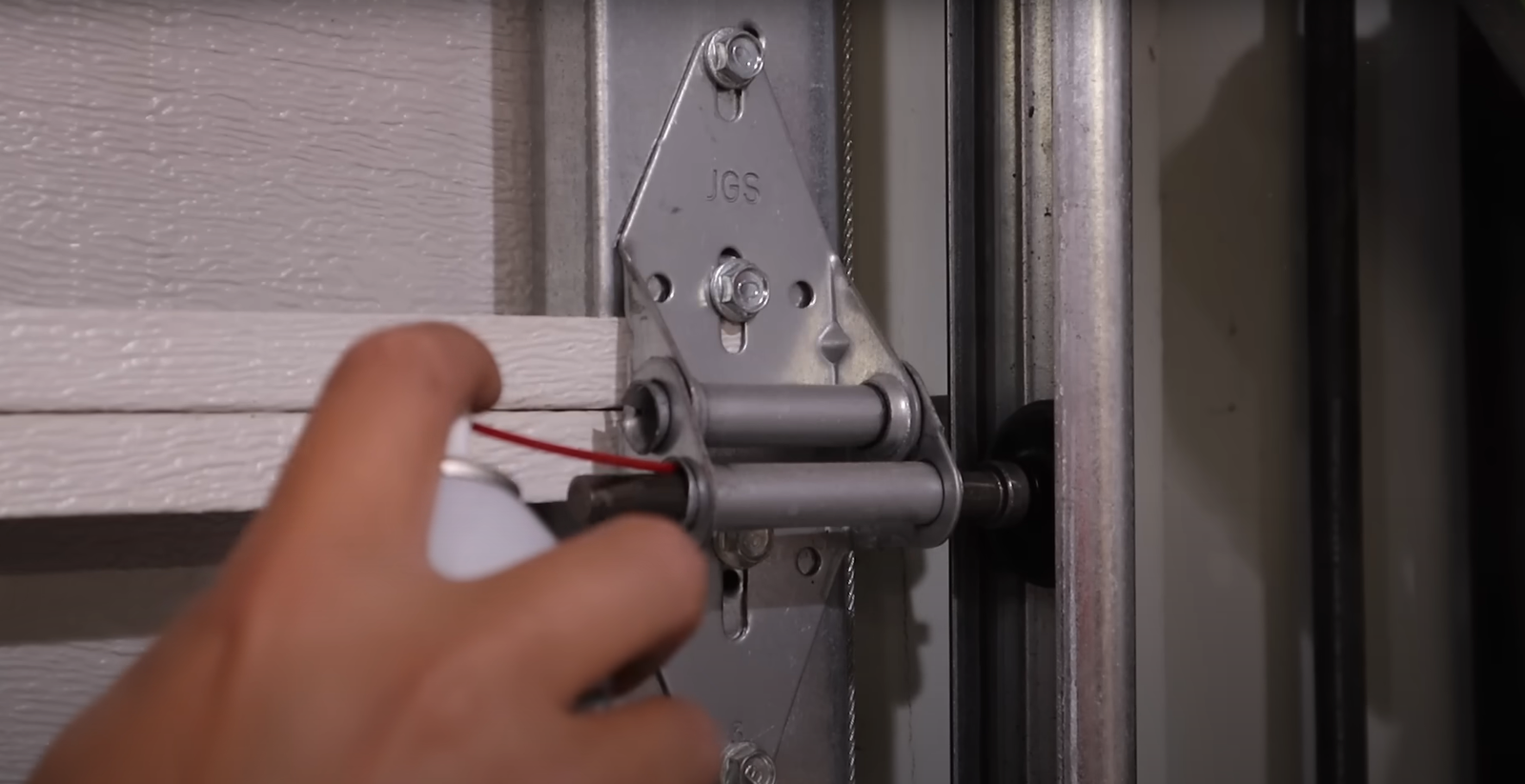- COMMERCIAL GARAGE DOOR REPAIR
- GARAGE DOOR OPENER INSTALLATION
- GARAGE DOOR SPRING REPAIR
- SAME-DAY GARAGE DOOR REPAIR
- CUSTOM GARAGE DOOR
- GARAGE DOOR OPENER REPAIR
- GARAGE DOOR TRACK REPAIR
- GARAGE DOOR CABLE REPAIR
- GARAGE DOOR PANEL REPAIR
- LOCAL GARAGE DOOR REPAIR
- GARAGE DOOR REPLACEMENT
- NOISY GARAGE DOOR FIX
- GARAGE DOOR INSTALLATION
- GARAGE DOOR SECTION REPLACEMENT
- OVERHEAD GARAGE DOOR REPAIR
- GATE REPAIR

Silence the Squeak: A Guide to Quieting Your Noisy Garage Door
A noisy garage door can be more than just an annoyance; it can disrupt the peace in your home and signal potential issues in need of repair. The good news? You’re not alone—many homeowners and DIY enthusiasts face the same challenge. This guide will walk you through common causes of garage door noise, practical DIY fixes, and tips on when to seek professional help.
Say goodbye to those squeaks, rattles, and grinding sounds and hello to a quieter, stress-free home.
Understanding the Source of Your Garage Door Noise
Before you can fix the problem, it’s important to understand what’s causing all the racket.
Common Causes of Noisy Garage Doors
- Lack of Lubrication: One of the most common culprits behind noisy garage doors is insufficient lubrication on moving parts like rollers, hinges, and springs.
- Loose Hardware: Over time, the constant vibrations from your garage door’s operation can loosen nuts, bolts, and screws. These tiny components, when not secured, are often the root cause of clattering or rattling sounds.
- Worn-Out Rollers: Rollers play a key role in guiding your garage door smoothly along the tracks. If they’re worn or made of metal instead of nylon, they can become a source of squeaks or grinding noises.
Diagnosing the Issue: Where to Start
To identify the source of the noise, start by operating your garage door while observing its movement. Listen closely and focus on any areas where abnormal sounds occur. Check for loose fittings, rusty components, or visible wear and tear. Once you’ve pinpointed the issue, you’re ready to tackle the problem.
DIY Fixes for Quieting Your Garage Door
Feeling handy? Here are some tried-and-tested noisy garage door fix to get that peace and quiet you’re craving.
Lubrication: The Key to a Smooth, Quiet Door
Lubrication is often the simplest and most effective solution. Use a silicone-based or garage door-specific lubricant to coat the rollers, tracks, hinges, and springs. Be sure to avoid WD-40, as it can actually dry out parts after initial use. Regular lubrication doesn’t just silence the noise—it also improves the door’s lifespan.
Tightening Up: Nuts and Bolts Matter
With your wrench or socket set in hand, tighten any loose nuts, bolts, and screws on the door, tracks, and hinges. But don’t overtighten—this could strip the threads or damage the parts. A firm, secure fit will reduce rattling and stabilize the door’s operation.
When to Call in the Professionals
Sometimes, even your best DIY efforts can fall short. Here’s when to consider professional help.
Signs Your Garage Door Needs Professional Attention
- Persistent noise even after lubrication and repairs
- Uneven or jerky door movement
- Broken springs or cables
- Worn-out nylon rollers that need replacing
When in doubt, bringing in an expert is the safest option.
A noisy garage door doesn’t have to disrupt your household any longer. With proper diagnosis, a few DIY fixes, and, when necessary, the expertise of Element Garage Doors Repair, you can enjoy a quieter, more reliable door. Don’t forget, regular maintenance is the secret to long-term peace and functionality.
Is your garage door still making a racket despite your best efforts? Contact Element Garage Doors Repair today for a hassle-free noisy garage door fix and keep your home as peaceful as it should be.

